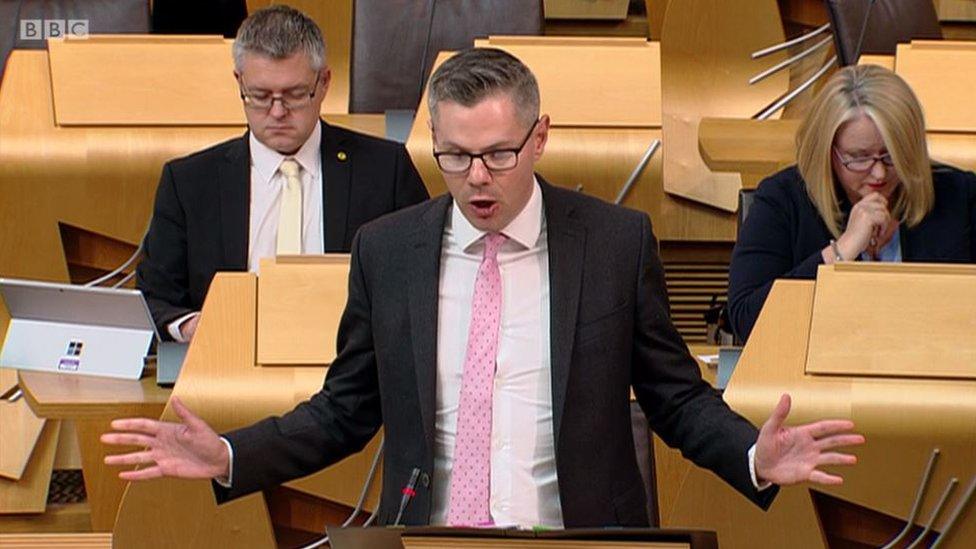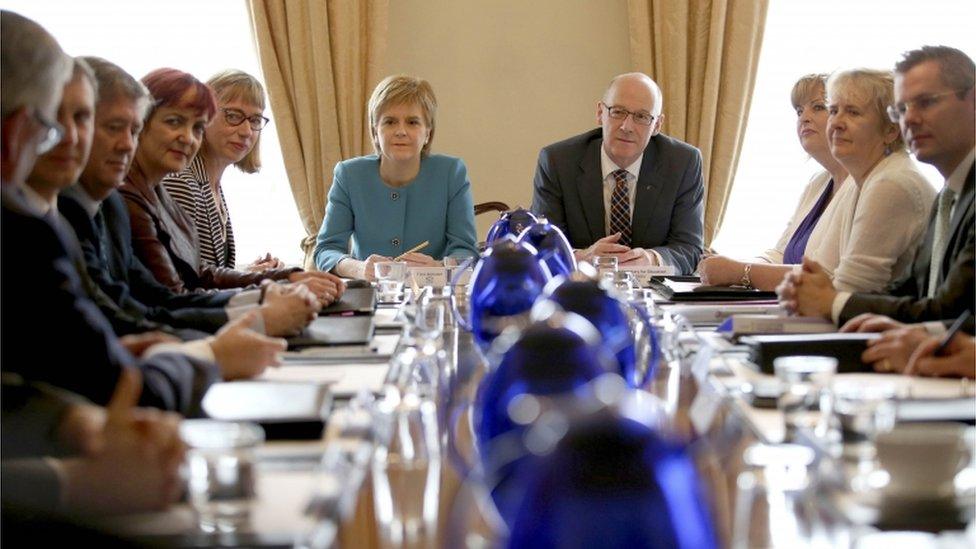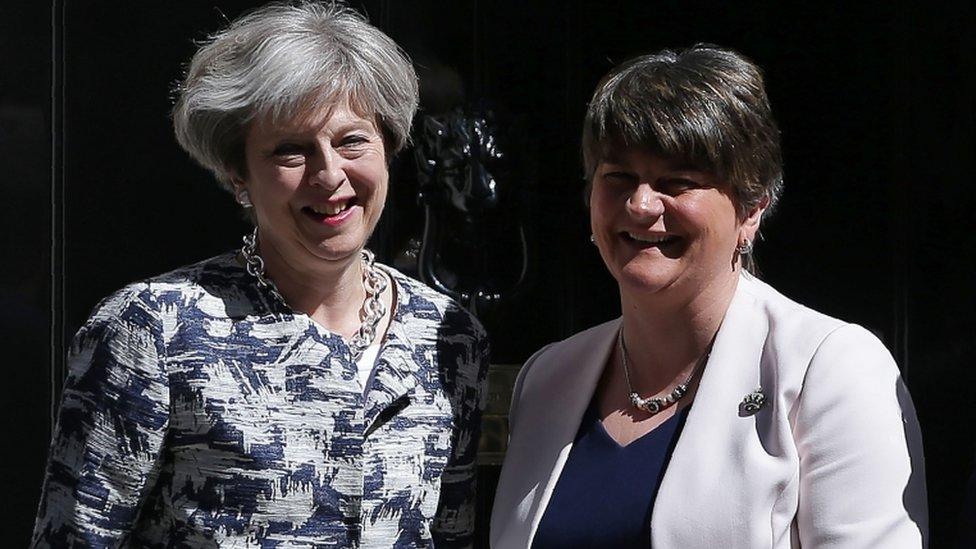Scots ministers escalate dispute over Tory-DUP deal funds
- Published

Derek Mackay has written to Treasury chief Liz Truss
The Scottish government is "likely" to trigger formal dispute resolution talks over the £1bn Conservative deal with the DUP at Westminster.
Ministers in Scotland believe that funding should also be heading north of the border in light of the agreement of extra money for Northern Ireland.
Finance Secretary Derek Mackay has written to Treasury chief Liz Truss asking for an "urgent" meeting.
The UK government insists the deal is not subject to Barnett formula rules.
Speaking for the first time since the deal was signed, Scottish Secretary David Mundell has defended the UK government's "transparent" approach.
A Scottish government spokesman said the deal was a "gross breach of the established principles of devolution".
The confidence and supply agreement sealed between the Conservatives and the Democratic Unionist Party on Monday will see £1bn of extra funding for Northern Ireland over the next two years, targeted at areas including health, education and infrastructure.
First Minister Nicola Sturgeon said Scotland was "missing out on an estimated £2.9bn" because of the London government "ignoring the Barnett formula".
However, Scottish Conservative leader Ruth Davidson said this was an "absurd" argument, pointing out that Scotland had benefited in the past from "the exact same" kind of deals.

What is the Barnett formula?
Since the late 1970s the Barnett formula has been used to determine annual changes in the block grant to each nation of the UK
When there is a change in funding for devolved services in England, for example health or education, the Barnett formula aims to give each country the same pounds-per-person change in funding
But the formula is not set out in law, and in practice the Treasury decides how to apply it
The UK government also provides other grants to devolved administrations outside of the block grant, which are not covered by Barnett
These grants are for less predictable demand driven spending, and are negotiated between the UK government and devolved administrations

Ms Sturgeon's cabinet discussed the deal at their weekly meeting, with a spokesman saying they voiced "displeasure".
During topical questions at Holyrood, Mr Mackay said he had written to Treasury chief Liz Truss "seeking an urgent meeting", adding that the deal was "ripping off Scotland to the tune of £2.9bn" and "undermining devolution".
In the letter, he said the deal had "not been properly considered" under funding policy that states that funding programmes should be "considered by Treasury ministers and their counterparts in the devolved administrations to ensure all viewpoints are understood before final decisions are taken".
Asking for an "urgent meeting" alongside the Welsh finance minister, he said he hoped that a "satisfactory resolution" could be reached with "a funding allocation across Scotland, Wales and the rest of the UK that is fair and reasonable for us all".
However he said if this did not happen, he said "we will look to pursue a more formal mechanism to resolve the situation by invoking the formal dispute resolution mechanism".

The Scottish cabinet voiced "displeasure" over the Conservative-DUP deal (library picture)
Also at cabinet, Ms Sturgeon called on Scottish Secretary David Mundell to explain comments he had made before the deal was announced, where he said he would not back any deal which "deliberately sought to subvert the Barnett rules".
The SNP's Westminster group leader Ian Blackford said that if Mr Mundell could not answer questions about the deal, his position would "quite simply be untenable".
Mr Mundell later told BBC Scotland the deal between the UK government and the DUP was "transparent" and did nothing to undermine the Barnett formula.
He said: "I was very clear that any arrangement had to be absolutely transparent - it is.
"I was clear that it had to be subject to the Barnett rules - it is. I was also clear there should be no subversion of the Barnett rules, and that hasn't happened."
Mr Mundell added: "I always argue for resources and funds for Scotland and the most important argument that I've made consistently over the years is that the Barnett formula should continue, and that's the difference between myself and the SNP.
"Only a year ago the SNP were arguing that we should give up the Barnett formula and that we should have full fiscal autonomy which would've cost Scotland billions."
'Previous support packages'
Downing Street has insisted the Barnett formula does not apply to the new money as it is provided as an addition to the Northern Ireland executive's block grant.
The Barnett system concerns any additional spend by the UK government in England on matters devolved to other parliaments, and the Conservatives insist this is not triggered by the deal.
A spokesman for the UK government said: "We are clear this is about delivering for the whole of the UK - so we can get on with our plan to get the best Brexit deal for our country and create an economy that works for everyone.
"Like previous Northern Ireland support packages, and city deals in Scotland and Wales, this funding is a targeted intervention to address a specific set of unique challenges. It is not unprecedented, the UK government has always been able to provide funding outside of Barnett."
- Published26 June 2017
